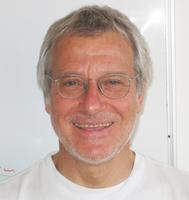Quantum mean field games (part 1)
Vassili N. Kolokoltsov – High School of Economics, Russia
Zoom link
Meeting ID: 910 7928 6959
Passcode: VISS
Quantum games represent the really 21st century branch of game theory, tightly linked to the modern development of quantum computing and quantum technologies. The main accent in these developments so far was made on stationary or repeated games. In the previous paper of the author the truly dynamic quantum game theory was initiated with strategies chosen by players in real time. Since direct continuous observations are known to destroy quantum evolutions (so-called quantum Zeno paradox) the necessary new ingredient for quantum dynamic games represented the theory of non-direct observations and the corresponding quantum filtering. Another remarkable 21st century branch of game theory represent the so-called mean-field games (MFG), with impressive and ever growing development. Here we are merging these two exciting new branches of game theory. Building a quantum analog of MFGs requires the full reconstruction of its foundations and methodology, because in N-particle quantum evolution particles are not separated in individual dynamics and the key concept of the classical MFG theory, the empirical measure defined as the sum of Dirac masses of the positions of the players, is not applicable in quantum setting. As a preliminary result we derive the new nonlinear stochastic Schrödinger equation, as the limit of continuously observed and controlled system of large number of interacting quantum particles, the result that may have an independent value. This equation describes an infinite-dimensional complex-valued curvilinear (on a manifold) nonlinear diffusion of McKean-Vlasov type. We then show that to a control quantum system of interacting particles there corresponds a special system of classical interacting particles with the identical limiting MFG system, defined on an appropriate Riemanian manifold. Solutions of this system are shown to specify approximate Nash equilibria for N-agent quantum games. This talk will be based on three author's preprints: Dynamic Quantum Games [1], Quantum Mean Field Games [2], and The Law of Large Numbers for Quantum Stochastic Filtering and Control of Many Particle Systems [3].
The talk consists of two parts:
- Part I (on Sept 11th) will be devoted mostly to the introduction to quantum filtering and control, which form the theoretical basis for Part II. All required notions of quantum mechanics will be introduced from scratch.
- Part II (on Sept 18th) will cover the development of quantum dynamic games and MFGs.
[1] https://arxiv.org/pdf/2002.00271.pdf
[2] https://arxiv.org/pdf/2005.02350.pdf
[3] https://arxiv.org/pdf/2008.07375.pdf
Everyone is welcome.




Location
Montréal Québec
Canada